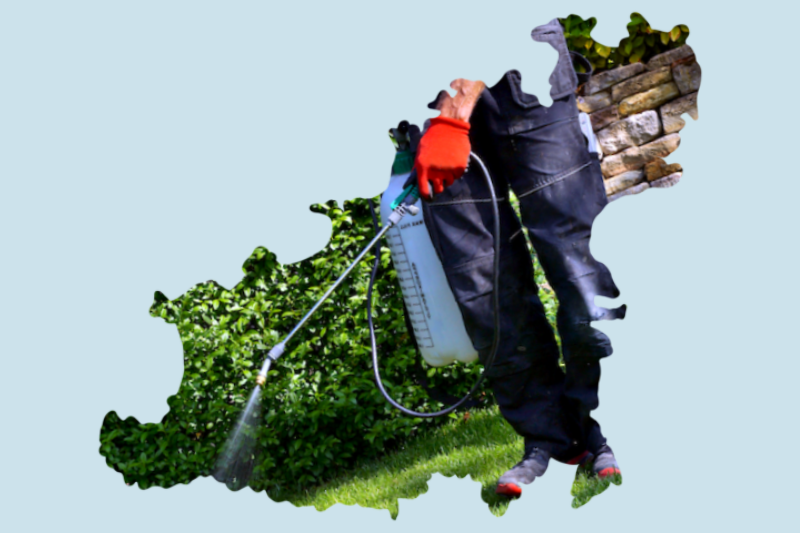

Historic use of pesticides will continue to damage Guernsey's environment even as more sustainable methods become increasingly popular, according to one of the island's leading environmental organisations.
"An issue in Guernsey is not just the usage but the residual quantity of pesticide products," said Gordon Steele of the Pollinator Project. He pointed to a recent 'amnesty' during which nearly 1,000 pesticide products were surrendered and exported or dumped.
Mr Steele said that "the past 20-30 years have seen pesticide use increase in frequency and toxicity". And, as importantly, chemicals such as DDT and Aldrin, which were widely used until they were banned in the 1980s, continue to damage ecosystems today.
Mr Steele reluctantly accepts that an outright ban on hazardous pesticides would be impractical, at least for the time being. Invasive, non-native species, such as Asian Hornets and Japanese Knotweed, cannot currently be effectively controlled without pesticides.
However, the Pollinator Project and the Committee for the Environment & Infrastructure is currently considering ways to improve their efforts to reduce the use of pesticides and reverse the decline of pollinators in the island. Communication is the key part of their policy to encourage sustainability by consent. The Pollinator Project is awaiting feedback on a communication plan which it recently submitted to the Committee.
“The Committee is really supportive of the principle of reducing pesticide use in the island,” said Deputy Lindsay De Sausmarez, President of the Committee for the Environment & Infrastructure.
“The Committee and the Pollinator Project are convinced that the best approach is to work with the community on this issue.”
Pictured: The Pollinator Project promote pesticide-free spaces across the island.
Earlier this year, the Pollinator Project hosted a pesticide amnesty at Longue Hougue. Mr Steele said that in a single weekend the public surrendered 888 products which included 250 harmful ingredients. Some of the products surrendered were over 40 years old.
The most hazardous chemicals are exported from the island for safe disposal, but others remain in Guernsey and are buried at Mont Cuet.
The Pollinator Project promotes understanding of the impact such chemicals can have on the island and works to change perceptions and attitudes to wildlife.
“Pollinating insects keep flowers in our gardens and food on our tables, including items such as chocolate and coffee,” said Mr Steele. “We encourage islanders, including those in the States, to reduce and eliminate pesticides where possible to create safe areas, such as surrounding schools and hospitals."
“We’re just the third sector trying to do the right thing without putting additional pressure on the government.”
The Pollinator Project has undertaken market research which supports the movement to reduce pesticides due to their effect on human health and the environment.
Mr Steele said that pests can often be controlled effectively by using alternatives to hazardous chemical pesticides. These alternatives can include spraying soapy water as often as required, slightly changing planting times or leaving natural predators to consume pests.
Comments
Comments on this story express the views of the commentator only, not Bailiwick Publishing. We are unable to guarantee the accuracy of any of those comments.